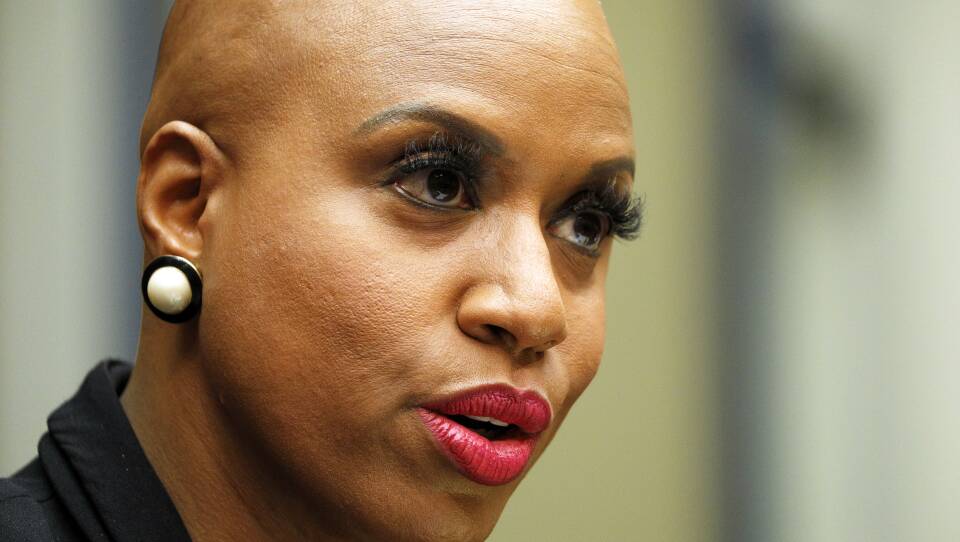Rep. Ayanna Pressley received the first of two vaccine shots Saturday and urged constituents to similarly guard themselves against the coronavirus.
In a statement to GBH News, Pressley said she was in good health after her first dose.
"I am feeling well and encourage everyone in our community to take the first opportunity available to receive the vaccine in the weeks and months to come. I am grateful to the scientists, researchers, and frontline healthcare workers who have worked tirelessly over the last several months to develop a vaccine that is safe and effective,” Pressley said.
Pressley, Massachusetts’ first and only Black member of Congress, received the first shot of the two-part Pfizer vaccine at the U.S. Capitol Saturday, as did other members of Congress. Her vaccination comes as policy makers worry abuot public confidence in the vaccine, particularly among people of color.
Pressley was among the first Massachusetts polititcans to make a public exhibition of their inoculation in a bid to soothe skeptical constituents about the vaccine’s safety and efficacy – an act she admitted came sooner than she expected.
Pressley said she intended to get the vaccine next year at a community health center, but "Members of Congress received notice at the end of this week from the Attending Physician that doses would be made available to us as part of a ‘continuity of government plan,’ a measure put in place during national crises. After consulting with my family and my doctor, I decided that I would move forward with this opportunity to receive the vaccine."
In January, Pressley revealed that she suffers from alopecia, an auto-immune disease that caused her to lose her hair. Pressley's office declined to elaborate on whether the condition may complicate her vaccination process, citing privacy concerns.
Sen. Elizabeth Warren and Rep. Katherine Clark also received the first shot treatment and released photos and messages via Twitter, Saturday.
More locally, other political leaders have vowed to take the vaccine in a similar effort to set an example , including Brockton mayor Robert F. Sullivan and Somerville mayor Joseph Curtatone.
But Boston city councilors Kim Janey and Andrea Campbell, as well as Framingham Mayor Yvonne M. Spicer, all Black women, have voiced hesitancy about getting the shots and pointed to historic incidents of medical racism and existing disparities in health care as reasons for distrust.
That skepticism has also been reflected in public polling. A recent Pew Research Center survey found that Black Americans are less willing to get vaccinated than other racial and ethnic groups. While 60 percent of Americans said they would likely get a coronavirus vaccine if it were available, only 42 percent of Black Americans indicated willingness — less than white adults (61 percent), Hispanics (63 percent) and English-speaking Asian Americans (83 percent).
Gov. Charlie Baker has also raised the question of whether public officials can make effective vaccine evangelists.
During a Friday press conference, Baker pointed to a recent poll from the Kaiser Family Foundation and said he does not intend to be inoculated publicly since most people indicated they trust their doctor or health care provider for reliable vaccine information, not political leaders.
A number of faith and non-profit leaders in Greater Boston have begun attempting to quell that skepticism among Black residents with informational events regarding the vaccine.
In her statement Saturday, Pressley acknowledged the concerns over medical racism and called on medical and government institutions to cultivate confidence among the skeptical communities.
“Healthcare justice is not a reality in America," Pressley's statement said. "The inequities we see in our healthcare system are stark, and the research and medical community have deeply violated the trust of Black and brown people in America throughout our nation’s history. It is up to our research and medical institutions, our elected officials, and our collective public health response to make amends and earn the trust of communities of color as we distribute this vaccine and rebuild."
Massachusetts has began vaccinating health care workers earlier this week, the first part of a three-phased approach to distributing the treatment throughout the state. The vaccine is scheduled for availability to the general public beginning in April.





